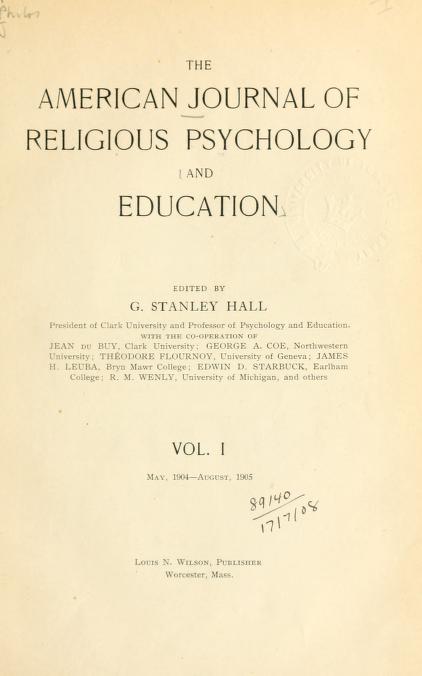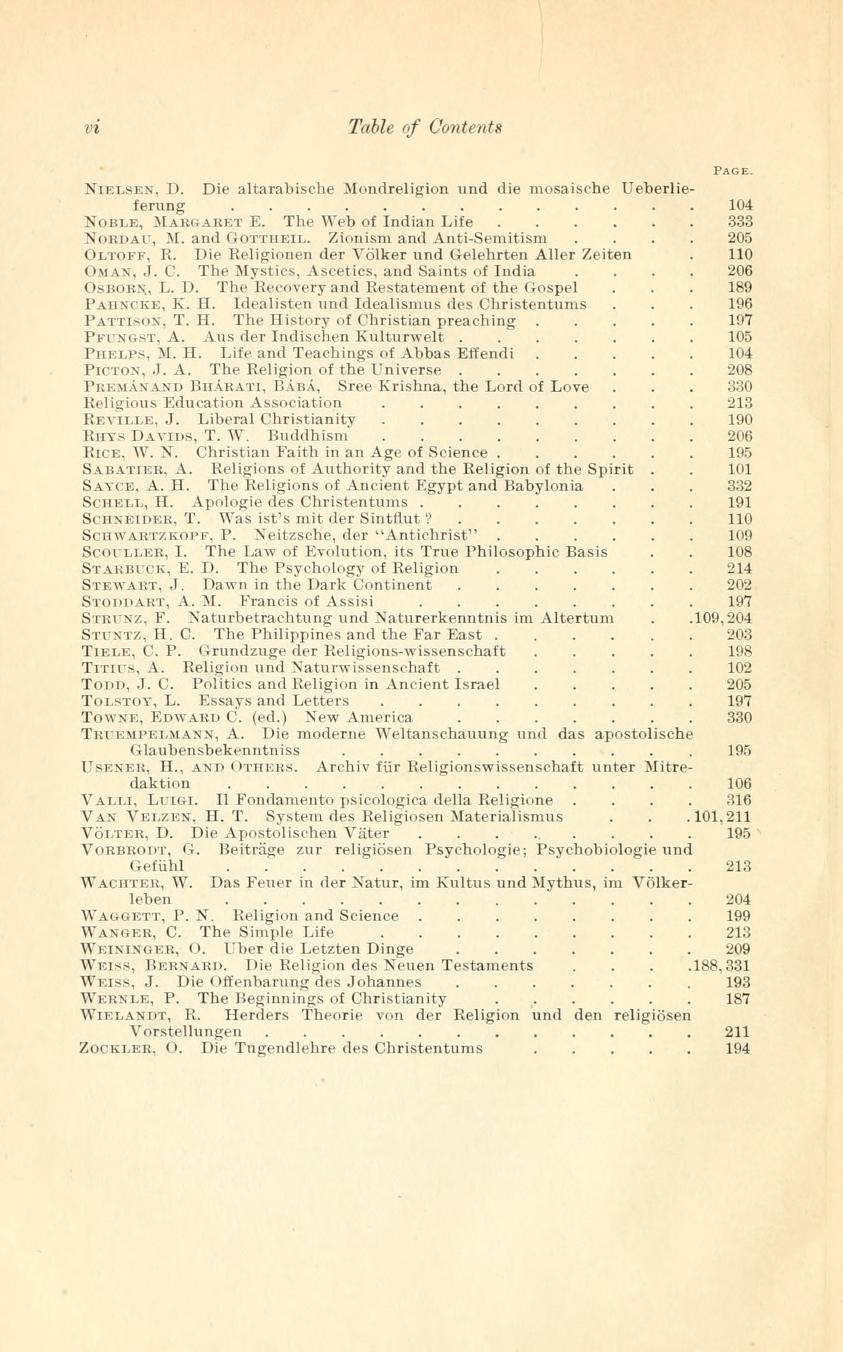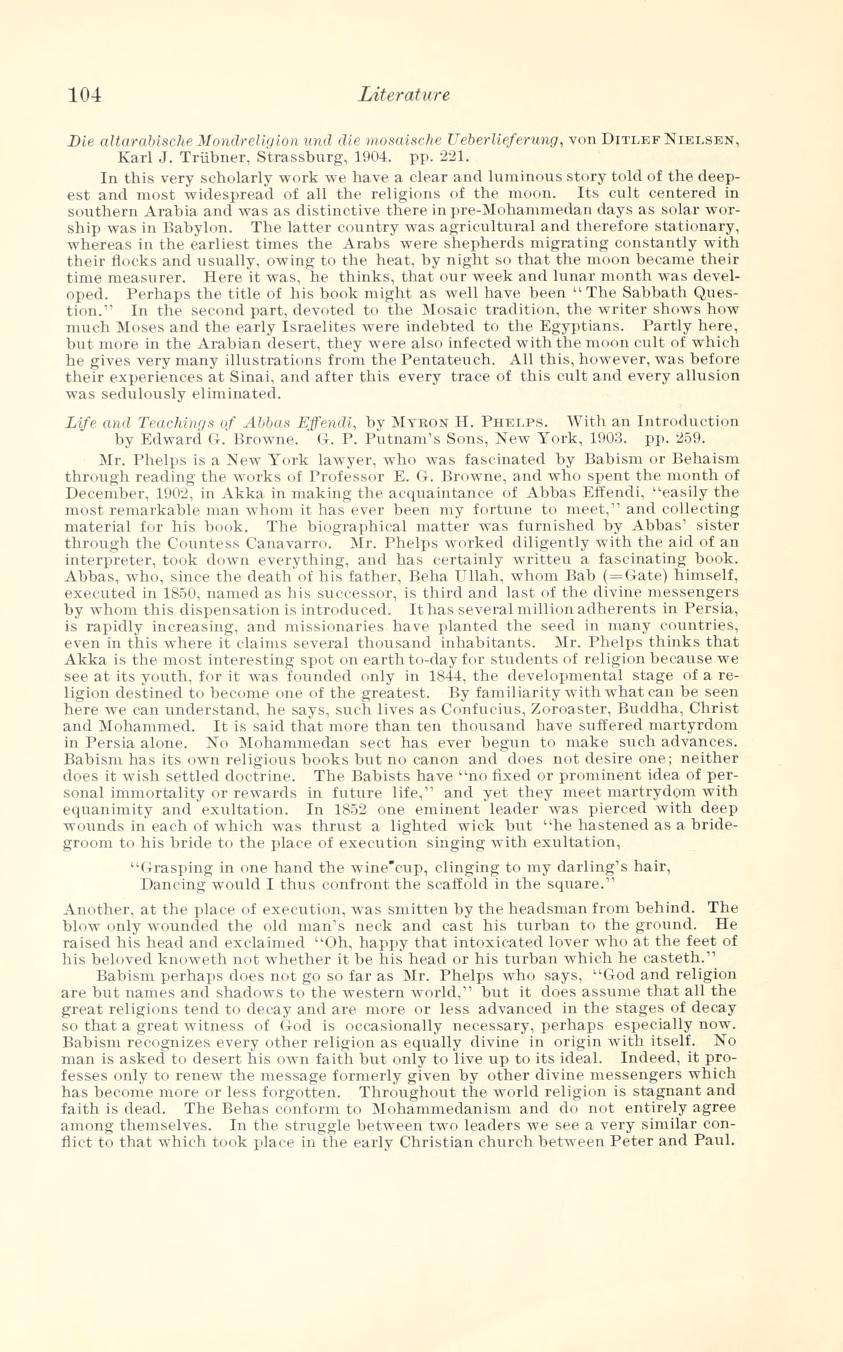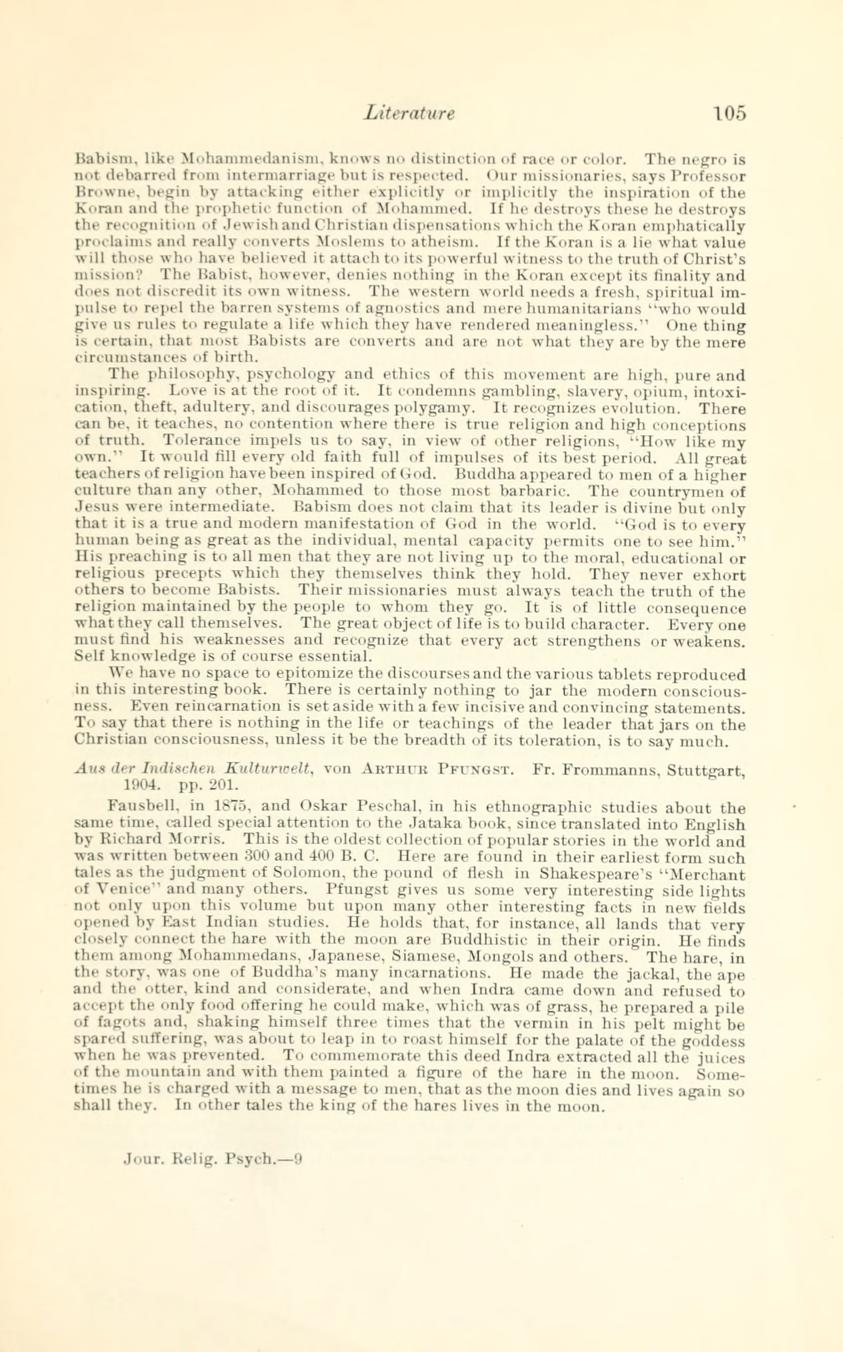
|
|
Abstract: Sympathetic review of one of the earliest English-language books on the Faith. Notes: Author not given; Stanley Hall, editor? This document is online in a variety of formats at archive.org. See also Life and Teachings of Abbas Effendi. |
Life and Teachings of Abbas Effendi, The by M. H. Phelps:
Review
edited by G. Stanley Hallpublished in American Journal of Religious Psychology and Education, 1:1, pages 104-105
1904-05
1. Text
Life and Teachings of Abbas Effendi, by Myron H. Phelps. With an Introduction by Edward G. Browne. G. P. Putnam's Sons, New York, 1903. pp. 259. [online here]Mr. Phelps is a New York lawyer, who was fascinated by Babism or Behaism through reading the works of Professor E. G. Browne, and who spent the month of December, 1902, in Akka in making the acquaintance of Abbas Effendi, "easily the most remarkable man whom it has ever been my fortune to meet," and collecting material for his book. The biographical matter was furnished by Abbas' sister through the Countess Canavarro. Mr. Phelps worked diligently with the aid of an interpreter, took down everything, and has certainly written a fascinating book. Abbas, who, since the death of his father, Beha Ullah, whom Bab ( = Gate) himself, executed in 1850, named as his successor, is third and last of the divine messengers by whom this dispensation is introduced. It has several million adherents in Persia, is rapidly increasing, and missionaries have planted the seed in many countries, even in this where it claims several thousand inhabitants. Mr. Phelps thinks that Akka is the most interesting spot on earth to-day for students of religion because we see at its youth, for it was founded only in 1844, the developmental stage of a religion destined to become one of the greatest. By familiarity with what can be seen here we can understand, he says, such lives as Confucius, Zoroaster, Buddha, Christ and Mohammed. It is said that more than ten thousand have suffered martyrdom in Persia alone. No Mohammedan sect has ever begun to make such advances. Babism has its own religious books but no canon and does not desire one; neither does it wish settled doctrine. The Babists have "no fixed or prominent idea of personal immortality or rewards in future life," and yet they meet martrydom with equanimity and exultation. In 1852 one eminent leader was pierced with deep wounds in each of which was thrust a lighted wick but "he hastened as a bride-groom to his bride to the place of execution singing with exultation,
Dancing would I thus confront the scaffold in the square."
Another, at the place of execution, was smitten by the headsman from behind. The blow only wounded the old man's neck and cast his turban to the ground. He raised his head and exclaimed "Oh, happy that intoxicated lover who at the feet of his beloved knoweth not whether it be his head or his turban which he casteth."
Babism perhaps does not go so far as Mr. Phelps who says, "God and religion are but names and shadows to the western world." but it does assume that all the great religions tend to decay and are more or less advanced in the stages of decay so that a great witness of God is occasionally necessary, perhaps especially now. Babism recognizes every other religion as equally divine in origin with itself. No man is asked to desert his own faith but only to live up to its ideal. Indeed, it processes only to renew the message formerly given by other divine messengers which has become more or less forgotten. Throughout the world religion is stagnant and faith is dead. The Behas conform to Mohammedanism and do not entirely agree among themselves. In the struggle between two leaders we see a very similar conflict to that which took place in the early Christian church between Peter and Paul.
Babism, like Mohammedanism, knows no distinction of race or color. The negro is not debarred from intermarriape bit is respected. Our missionaries, says Professor Browne, begin by attacking either explicitly or implicitly the inspiration of the Koran and the prophetic function of Mohammed. If he destroys these he destroys the recognition of Jewish and Christian Dispensations which the Koran emphatically proclaims and really converts Moslems to atheism. If the Koran is a lie what value will those who have believed it attach to its powerful witness to the truth of Christ's mission? The Babist, however, denies nothing in the Koran except its finality and does not discredit its own witness. The western world needs a fresh, spiritual impulse to repel the barren systems of agnostics and mere humanitarians "who would give us rules to regulate a life which they have rendered meaningless." One thing is certain, that most Babists are converts and are not what they are by the mere circumstances of birth.
The philosophy, psychology and ethics of this movement are high, pure and inspiring. Love is at the root of it. It condemns gambling, slavery, opium, intoxication, theft, adultery, and discourages polygamy. It recognizes evolution. There can be, it teaches, no contention where there is true religion and high conceptions of truth. Tolerance impels us to say, in view of other religions, "How like my own." It would till every old faith full of impulses of its best period. All great teachers of religion have been inspired of God. Buddha appeared to men of a higher culture than any other. Mohammed to those most barbaric. The countrymen of Jesus were intermediate. Babism does not claim that its leader is divine but only that it is a true and modern manifestation of God in this world. "God is to every human being as great as the individual, mental capacity permits one to see him." His teaching is to all men that they are not living up to the moral, educational or religious precepts which they themselves think they hold. They never exhort others to become Babists. Their missionaries must always teach the truth of the religion maintained by the people to whom they go. It is of little consequence what they call themselves. The great object of life is to build character. Every one must rind his weaknesses and recognize that every act strengthens or weakens. Self knowledge is of course essential.
We have no space to epitomize the discourses and the various tablets reproduced in this interesting book. There is certainly nothing to jar the modern consciousness. Even reincarnation is set aside with a few incisive and convincing statements. To say that there is nothing in the life or teachings of the leader that jars on the Christian consciousness, unless it be the breadth of its toleration, is to say much.
2. Page scans




ajrpe_phelps_review_cover.jpg
|
|